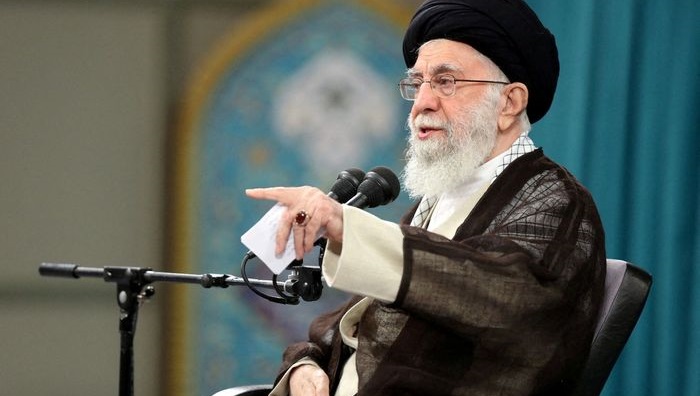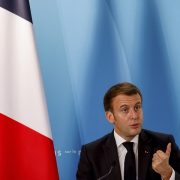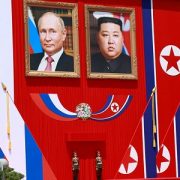
Tehran upped the ante and scored a strategic success with its attack. Israel also achieved its outcomes. The Middle East game has become more dangerous.
Tehran upped the ante and scored a strategic success with its attack. Israel also achieved its outcomes. The Middle East game has become more dangerous.
A massive strategic shift in the Middle East is occurring following Iran’s decision to launch direct attacks against Israel. Charles Freeman recently argued[1] that Iran’s assault on Israel made a significant strategic point—it clogged and overburdened Israeli defenses. He posited that if Iran were to launch ten times more missiles and drones, it could overwhelm Israeli defenses economically, potentially rendering them unsustainable in the long term. Moreover, Iran has demonstrated the will to pursue this strategy. Tehran is thus following Pyongyang’s footsteps. North Korea has repeatedly proven its capability and willingness to strike its “enemies.”
Up until now, Tehran had restrained itself from attacking Israel directly; however, it has now shattered that restraint. The only crucial strategic difference between Iran and North Korea is that Iran does not possess ready-made nuclear weapons. It retains the capability to produce atomic weapons.
Israeli retaliation conveys a clear message: it can strike Iran at will, and it reestablishes the red line that Iran must not progress toward obtaining ready-made nuclear weapons.
Additionally, Israel has achieved something new with US support. For the first time, Saudi Arabia participated in the defense of Israel and is now integrated into an anti-Iranian coalition. The US has united significant regional players—Egypt, Jordan, Israel, and Saudi Arabia, along with the Kurds—in a collective effort against Iran. The latest volley of Israeli missiles likely originated from Kurdish-held territories in northern Iraq or Syria. Furthermore, the internal Iranian opposition may have played a role in the attacks on Iranian facilities and might be buoyed by these broader developments.
Overall, “The participation of both Jordan and Saudi Arabia in the defense of Israeli airspace on April 14 demonstrates that Iran has failed to translate the unrest over Israel’s offensive in Gaza into a broad rift between Israel and major Arab states… The totality of Iran’s actions since the October 7 Hamas attack has set back Tehran’s efforts to build bridges to major Arab states, particularly the monarchies of the Persian Gulf.” [2]
The long-term consequences of Iran’s progressive ‘North Koreanization’ are unclear—whether it will rally other countries in the region around it or alienate them.
Additionally, the possible Kurdish participation might have alarmed Turkey’s President Recep Tayyip Erdogan, who has an enduring anti-Kurdish agenda. The restive Kurdish minority constitutes approximately 20% of the Turkish population. On April 20, Erdogan met in Istanbul with Hamas leader Ismail Haniyeh and called for Palestinian unity. The prospect of a stronger Kurdish political presence outside of Turkey, supported by Israel, might push Erdogan closer to Iran’s ayatollahs. Or it could be just the opposite. Erdogan met with Haniyeh to urge him to back down and collaborate with the moderate West Bank Palestinian authorities.
Nonetheless, the overarching political statements are clear: Iran can and will directly attack Israel; Israel can and will eradicate Iran’s nuclear program. The political dynamics in the Middle East have become more complex and may have also shifted the positions of Russia and China in the region. They are now drawn more into an Iranian assertive orbit and are distancing themselves from other Arab countries.
In 2022, North Korean threats helped the victory of the current South Korean president, Yoon Suk Yeol, who is more pro-American and opposed to dialogue with the North. Similarly, Iranian attacks pushed the Saudis into Israeli arms. In the former case, North Korean backer China inherited worse relations with South Korea. Today, the Saudi-Iran pact, signed in Beijing a year ago, is in tatters.
Turkey’s maneuvering room has increased as a result.
It all goes back to Gaza. Now more than ever, Israel needs to develop a viable political strategy for Gaza and the Palestinians after eliminating Hamas terrorists. It is crucial to deflect Iranian threats and strengthen ties with the Arab world. Without it, navigating these challenges will become increasingly difficult for Israel and its allies; thus, Israeli strategic confusion is the biggest asset for its enemies.
- Pubblicato sul sito dell’Appia Institute.
[1] https://x.com/RnaudBertrand/status/1782237759106887735
[2] https://mailchi.mp/thesoufancenter/irans-gains-and-setbacks-from-attack-on-israel?e=9fec5bda84





